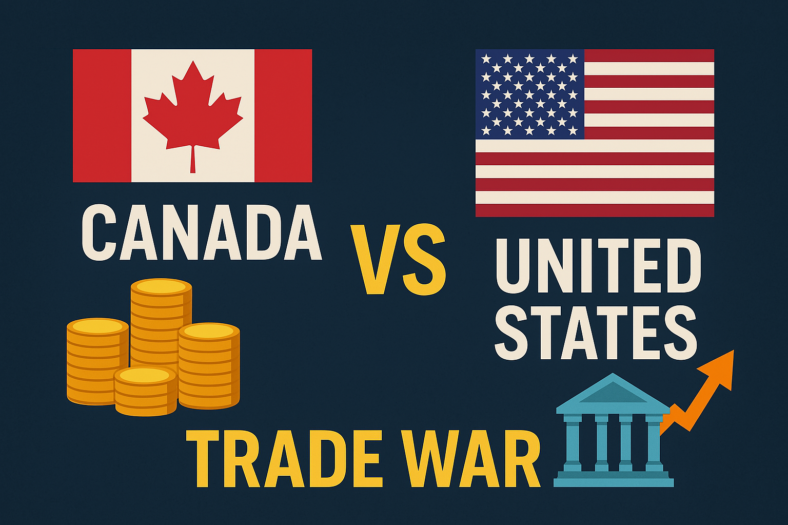In the Canadian entrepreneurial landscape, where innovation thrives and ambition knows no bounds, navigating the terrain of startup loans is both critical and complex. Understanding the intricacies of financing options, from traditional bank loans to government grants and venture capital, can be the difference between propelling your startup forward or stalling in the starting blocks.
This comprehensive guide is crafted to empower Canadian entrepreneurs with the knowledge and insights necessary to navigate the realm of startup loans effectively. From demystifying the various financing avenues available to elucidating the intricacies of eligibility criteria and application processes, our aim is to equip you with the tools and understanding needed to make informed decisions and secure the financial resources vital for your startup’s success.
Whether you’re an aspiring entrepreneur with a groundbreaking concept or a seasoned innovator ready to take your startup to new heights, join us on this journey through the landscape of startup loans in Canada. Together, let’s unlock the doors to funding opportunities and pave the way for your entrepreneurial dreams to flourish in the vibrant mosaic of Canada’s startup ecosystem.
Best loans for start-ups – our top picks
What are loans for start-ups and how do they work?
Loans for startups are financial instruments specifically designed to provide capital to new businesses in their early stages of development. These loans serve as a lifeline for entrepreneurs seeking to launch or grow their ventures but lack the necessary capital from personal savings, investments, or other sources. Understanding how these loans work is crucial for entrepreneurs to make informed decisions about financing their startups effectively.
Purpose and Usage: Startup loans can be used for various purposes essential for business operations, such as covering initial setup costs, purchasing equipment, hiring employees, securing inventory, marketing efforts, and other operational expenses. The funds obtained through startup loans aim to fuel the growth and expansion of the business, allowing entrepreneurs to execute their business plans and achieve their goals.
Types of Startup Loans:
- Traditional Bank Loans: Offered by banks and financial institutions, these loans typically require collateral and a solid credit history. They come with fixed or variable interest rates and may have stringent eligibility criteria.
- Government Loans and Grants: Governments at the federal, provincial, and municipal levels often provide financial assistance programs tailored to support startups. These may include loans, grants, or subsidies with favorable terms and conditions.
- Alternative Lenders: Non-bank lenders, online platforms, and peer-to-peer lending networks offer alternative financing options for startups. These lenders may have more flexible eligibility requirements and faster approval processes but may come with higher interest rates.
- Venture Capital and Angel Investors: While not traditional loans, venture capital and angel investors provide equity financing to startups in exchange for ownership stakes. This option is suitable for high-growth potential businesses but often involves giving up a portion of ownership and decision-making control.
Eligibility Criteria: The eligibility criteria for startup loans vary depending on the type of loan and the lender. Common factors considered include the business plan, financial projections, creditworthiness of the entrepreneur, collateral, industry risk, and potential for growth and profitability.
Application Process: Entrepreneurs seeking startup loans typically undergo an application process that involves submitting a detailed business plan, financial statements, personal and business credit history, collateral documentation (if required), and other relevant information. The lender evaluates the application based on predetermined criteria and may conduct interviews or site visits before making a lending decision.
Repayment Terms: Startup loans come with varying repayment terms, including the loan amount, interest rate, repayment period, and frequency of payments. It’s essential for entrepreneurs to understand the terms of the loan agreement, including any fees, penalties, or conditions associated with early repayment or default.
In summary, startup loans provide essential financial support for entrepreneurs to launch and grow their businesses. By understanding the different types of loans available, the application process, eligibility criteria, and repayment terms, entrepreneurs can make informed decisions to secure the financing they need to turn their startup dreams into reality.
Pros and cons of loans for start-ups
Pros:
Access to Capital: Startup loans provide access to much-needed capital for entrepreneurs to launch or expand their businesses, enabling them to cover initial setup costs, invest in equipment, hire employees, and fund marketing efforts.
Ownership Retention: Unlike equity financing options such as venture capital, startup loans allow entrepreneurs to retain full ownership and control of their businesses. Borrowers do not have to dilute their ownership stakes or share profits with investors.
Flexible Use of Funds: Entrepreneurs have the flexibility to use loan funds for various business purposes, from purchasing inventory to covering operational expenses, without restrictions on how the money is allocated.
Building Credit History: Successfully repaying a startup loan can help entrepreneurs establish and build their business credit history, which may be beneficial for accessing future financing opportunities and negotiating better terms with lenders.
Stable Interest Rates: Fixed-rate loans offer predictable monthly payments, allowing entrepreneurs to budget and plan for expenses effectively without worrying about fluctuating interest rates.
Cons:
Debt Obligation: Taking on debt through startup loans means entrepreneurs have to repay the borrowed amount along with interest, which can add financial pressure, especially during the early stages of business growth when revenues may be limited.
Risk of Default: If a startup fails to generate sufficient revenue or encounters financial difficulties, it may struggle to repay the loan, leading to default. Defaulting on a loan can damage the entrepreneur’s credit score and jeopardize future borrowing opportunities.
Collateral Requirements: Some lenders may require collateral to secure the loan, such as personal assets or business assets. Putting personal assets at risk can be daunting for entrepreneurs, especially if the business does not perform as expected.
Interest Expenses: Borrowing funds through startup loans incurs interest expenses, which add to the overall cost of financing. High-interest rates or fees can significantly increase the financial burden on startups, affecting profitability and cash flow.
Limited Eligibility: Startups may face challenges in qualifying for traditional bank loans due to limited operating history, lack of collateral, or insufficient creditworthiness. Alternative financing options may have higher interest rates or stricter terms, limiting access to capital for some entrepreneurs.
In conclusion, while startup loans provide essential financial support for entrepreneurs to pursue their business goals, they also come with risks and challenges that need to be carefully considered. Entrepreneurs should weigh the pros and cons of different financing options and assess their business’s financial position and growth prospects before committing to a loan.
Types of loans for start-ups available in Canada
In Canada, several types of loans are available to support startups in their early stages of development. Each type of loan has its own eligibility criteria, terms, and conditions, catering to the diverse needs of entrepreneurs across different industries and stages of growth. Here are some common types of startup loans available in Canada:
Government Startup Loans:
- Canada Small Business Financing Program (CSBFP): Administered by the Government of Canada, CSBFP provides loans of up to $1 million to help small businesses acquire equipment and real estate. These loans are partially guaranteed by the government, reducing the risk for lenders and enabling startups to access financing with lower down payments and longer repayment terms.
- Regional Development Agencies (RDAs): Various regional development agencies across Canada offer loans and grants to support economic development and entrepreneurship in specific provinces or territories. These programs may include funding for startups, innovation, job creation, and community development.
Traditional Bank Loans:
- Business Term Loans: Offered by banks and financial institutions, business term loans provide startups with a lump sum of capital that is repaid over a fixed term with regular installment payments. These loans may have fixed or variable interest rates and require collateral or personal guarantees to secure the financing.
- Business Lines of Credit: Business lines of credit provide startups with access to a revolving credit facility that can be used to cover short-term expenses, manage cash flow fluctuations, or seize opportunities for growth. Startups only pay interest on the amount borrowed and can draw funds as needed, up to a predetermined credit limit.
Alternative Financing Options:
- Online Lenders: Online lenders and fintech platforms offer alternative financing options for startups, including term loans, lines of credit, and merchant cash advances. These lenders often have faster approval processes, more flexible eligibility criteria, and may cater to startups with limited credit history or collateral.
- Peer-to-Peer Lending: Peer-to-peer lending platforms connect startups with individual investors willing to lend money in exchange for competitive interest rates. This crowdfunding model bypasses traditional financial institutions, allowing startups to access capital from a diverse pool of investors.
Angel Investors and Venture Capitalists:
- While not traditional loans, angel investors and venture capitalists provide equity financing to startups in exchange for ownership stakes. These investors typically inject capital into high-growth potential businesses and provide strategic guidance and mentorship to help startups scale and succeed.
Community Development Financial Institutions (CDFIs):
- Some communities in Canada have CDFIs that offer loans and financial services to support underserved entrepreneurs and small businesses, particularly those in low-income or disadvantaged areas. These organizations may provide startup loans with favorable terms and targeted support for specific industries or demographics.
By exploring these various types of startup loans available in Canada, entrepreneurs can identify the financing options that best align with their business needs, growth objectives, and financial circumstances. It’s essential for startups to conduct thorough research, assess their funding requirements, and carefully evaluate the terms and conditions of each loan before making a decision.
How to find the best loans for start-ups in Canada
Finding the best loans for startups in Canada requires careful research, strategic planning, and a thorough understanding of your business’s financial needs and growth objectives. Here’s a step-by-step guide to help you navigate the process:
Assess Your Funding Needs:
- Determine how much capital your startup requires to launch or grow your business. Consider factors such as initial setup costs, equipment purchases, operating expenses, marketing budgets, and potential expansion plans.
Evaluate Your Financial Position:
- Assess your startup’s financial health, including cash flow projections, revenue forecasts, and profitability potential. Review your personal and business credit history, debt obligations, and available collateral to gauge your borrowing capacity and creditworthiness.
Research Loan Options:
- Explore the various types of loans available to startups in Canada, including government programs, traditional bank loans, alternative financing options, and investor funding. Research the features, eligibility criteria, terms, interest rates, and repayment options of each loan option to identify those that align with your needs.
Consider Government Programs:
- Investigate government-sponsored loan programs and grants designed to support small businesses and startups in Canada. Research programs offered by federal, provincial, and municipal governments, as well as regional development agencies, to determine if your startup qualifies for financial assistance.
Compare Lenders:
- Research and compare different lenders, including banks, credit unions, online lenders, peer-to-peer platforms, and community development financial institutions. Consider factors such as reputation, customer reviews, interest rates, fees, loan terms, and customer service quality when evaluating lenders.
Review Eligibility Criteria:
- Understand the eligibility requirements for each loan option, including credit score minimums, business age requirements, revenue thresholds, collateral requirements, and industry restrictions. Focus on lenders and programs that align with your startup’s profile and funding needs.
Gather Documentation:
- Prepare the necessary documentation required for loan applications, including a detailed business plan, financial statements, cash flow projections, personal and business credit reports, tax returns, legal documents, and collateral documentation. Ensure that your documents are accurate, up-to-date, and well-organized to streamline the application process.
Seek Professional Advice:
- Consider consulting with financial advisors, accountants, or business mentors who can provide guidance and expertise on navigating the loan application process. They can offer valuable insights, review your financials, and help you identify the most suitable loan options for your startup.
Submit Loan Applications:
- Once you’ve identified the best loan options for your startup, carefully review the application requirements and submit your loan applications to selected lenders or programs. Be prepared to provide additional information or documentation as requested and follow up with lenders to track the progress of your applications.
Evaluate Offers and Terms:
- Compare loan offers from different lenders, including interest rates, loan amounts, repayment terms, and fees. Evaluate the total cost of borrowing and consider the impact on your startup’s cash flow and profitability before accepting any loan offers.
By following these steps and conducting thorough research, you can identify and secure the best loans for your startup in Canada, positioning your business for success and sustainable growth.
How to apply for a loans for start-ups in Canada
Applying for a startup loan in Canada involves several steps to ensure a smooth and successful application process. Here’s a detailed guide on how to apply for a startup loan:
Research Loan Options:
- Begin by researching the various types of startup loans available in Canada, including government programs, traditional bank loans, alternative lenders, and investor funding. Identify the loan options that best align with your business needs, financial goals, and eligibility criteria.
Prepare Your Business Plan:
- Develop a comprehensive business plan that outlines your startup’s mission, products or services, target market, competitive analysis, marketing strategy, revenue projections, and financial forecasts. Your business plan serves as a roadmap for lenders to evaluate the viability and potential of your startup.
Assess Eligibility Criteria:
- Review the eligibility requirements for each loan option to determine if your startup meets the lender’s criteria. Consider factors such as credit score minimums, business age requirements, revenue thresholds, collateral requirements, and industry restrictions.
Gather Required Documentation:
- Collect the necessary documentation required for the loan application process, which may include:
- Business plan
- Personal and business credit reports
- Financial statements (income statement, balance sheet, cash flow statement)
- Tax returns (personal and business)
- Legal documents (business registration, licenses, contracts)
- Collateral documentation (if applicable)
- Collect the necessary documentation required for the loan application process, which may include:
Research Lenders and Programs:
- Research and compare lenders offering startup loans in Canada, including banks, credit unions, online lenders, government agencies, and community development financial institutions. Consider factors such as reputation, interest rates, fees, loan terms, and customer reviews when evaluating lenders.
Submit Loan Applications:
- Complete the loan application forms provided by your chosen lender or program. Ensure that you provide accurate and complete information, and attach all required documentation to support your application. Some lenders may offer online application portals for added convenience.
Follow Up with Lenders:
- Follow up with the lender to confirm receipt of your loan application and inquire about the status of your application. Be prepared to provide additional information or documentation if requested by the lender to complete the application process.
Review Loan Offers:
- Once you receive loan offers from lenders, carefully review the terms and conditions, including interest rates, loan amounts, repayment terms, and fees. Compare offers from multiple lenders to determine the most favorable terms for your startup.
Accept Loan Offer:
- If you’re satisfied with a loan offer, formally accept the offer by signing the loan agreement and any associated documents provided by the lender. Make sure you understand the terms of the loan, including repayment obligations, interest rates, and any penalties for early repayment or default.
Disbursement of Funds:
- After accepting the loan offer and fulfilling any closing requirements, the lender will disburse the funds to your startup’s designated bank account. Use the funds responsibly to achieve your business goals and ensure timely repayment of the loan.
By following these steps and being prepared throughout the application process, you can increase your chances of successfully securing a startup loan for your business in Canada.
Common fees and costs for loans for start-ups
When obtaining a loan for a startup in Canada, it’s essential to be aware of the various fees and costs associated with borrowing. Here are some common fees and costs you may encounter:
Interest Rates:
- Interest rates represent the cost of borrowing money and are typically expressed as an annual percentage rate (APR). The interest rate on a loan depends on factors such as the lender’s assessment of risk, prevailing market rates, and the borrower’s creditworthiness. Startups may encounter fixed or variable interest rates, with fixed rates providing predictable monthly payments and variable rates fluctuating with market conditions.
Origination Fees:
- Origination fees, also known as processing fees or administration fees, are charged by lenders to cover the costs associated with processing a loan application. These fees are typically calculated as a percentage of the loan amount and may be deducted from the loan proceeds or added to the total loan amount.
Application Fees:
- Some lenders may charge application fees to cover the costs of evaluating and processing loan applications. Application fees are typically non-refundable and may vary depending on the lender and the complexity of the application process.
Underwriting Fees:
- Underwriting fees are charged by lenders to cover the costs of assessing the borrower’s creditworthiness, verifying financial information, and determining the risk associated with the loan. These fees may be included in the loan closing costs or charged separately.
Prepayment Penalties:
- Prepayment penalties are fees charged by lenders if the borrower pays off the loan before the end of the loan term. These penalties compensate the lender for potential lost interest income and may be calculated as a percentage of the outstanding loan balance or a predetermined amount.
Late Payment Fees:
- Late payment fees are charged by lenders when borrowers fail to make timely loan payments according to the terms of the loan agreement. These fees are typically assessed as a percentage of the overdue payment or a flat fee and may accrue daily until the outstanding balance is paid.
Annual Fees:
- Some lenders may charge annual fees for maintaining a line of credit or other revolving credit facilities. These fees are typically charged on an annual basis and may vary depending on the amount of credit available and the terms of the loan agreement.
Closing Costs:
- Closing costs are fees associated with finalizing the loan agreement and disbursing funds to the borrower. These costs may include legal fees, documentation fees, title search fees, and other administrative expenses incurred by the lender.
Insurance Premiums:
- Lenders may require borrowers to purchase insurance coverage, such as mortgage insurance or business loan insurance, to protect against default or other risks. Insurance premiums are typically added to the loan amount and may increase the overall cost of borrowing.
Third-Party Fees:
- Borrowers may incur third-party fees related to loan transactions, such as appraisal fees, property inspection fees, credit report fees, and title insurance fees. These fees are typically paid to external service providers involved in the loan process and are passed on to the borrower.
Before committing to a loan for your startup, carefully review the loan agreement and disclosure documents provided by the lender to understand the full scope of fees and costs associated with the loan. Consider comparing offers from multiple lenders to identify the most competitive terms and minimize the overall cost of borrowing for your startup.
Loans for start-ups vs regular personal loans
When considering financing options for a startup, entrepreneurs often weigh the merits of startup-specific loans against traditional personal loans. Here’s a detailed comparison between loans for startups and regular personal loans:
Purpose:
- Loans for Start-ups: Specifically designed to provide capital to new businesses in their early stages of development. These loans are intended to fund business-related expenses such as equipment purchases, inventory, marketing, and operational costs.
- Regular Personal Loans: Generally used for personal financial needs such as debt consolidation, home renovations, medical expenses, or unexpected emergencies. Personal loans are not specifically tailored to fund business ventures or startup costs.
Application Process:
- Loans for Start-ups: Typically involve a more rigorous application process that focuses on the business’s financials, including a detailed business plan, revenue projections, and collateral documentation. Lenders may also evaluate the entrepreneur’s industry experience, credit history, and business viability.
- Regular Personal Loans: Usually have a simpler application process that requires personal financial information, such as income, employment status, credit score, and debt-to-income ratio. The approval process for personal loans may be quicker compared to startup loans.
Eligibility Criteria:
- Loans for Start-ups: Often require the business to meet specific eligibility criteria, such as a minimum time in operation, minimum revenue thresholds, and industry restrictions. Lenders may also require personal guarantees or collateral to secure the loan.
- Regular Personal Loans: Depend primarily on the borrower’s personal creditworthiness and financial stability. Eligibility criteria typically include a minimum credit score, stable income, and low debt-to-income ratio. Collateral may not be required for unsecured personal loans.
Loan Amounts and Terms:
- Loans for Start-ups: Offer higher loan amounts tailored to meet the unique financing needs of businesses. Startup loans may have longer repayment terms and more flexible terms compared to personal loans.
- Regular Personal Loans: Generally offer smaller loan amounts compared to startup loans and may have shorter repayment terms. Personal loan terms and conditions are standardized based on the borrower’s credit profile and the lender’s policies.
Interest Rates:
- Loans for Start-ups: Interest rates for startup loans may vary depending on factors such as the lender’s assessment of risk, the borrower’s creditworthiness, and prevailing market rates. Startup loans may have higher interest rates compared to personal loans due to the perceived risk associated with new businesses.
- Regular Personal Loans: Interest rates for personal loans are determined based on the borrower’s credit score, income level, and other risk factors. Borrowers with excellent credit may qualify for lower interest rates on personal loans compared to startup loans.
Use of Funds:
- Loans for Start-ups: Funds obtained through startup loans are intended to be used for business-related purposes only, such as launching a new venture, expanding operations, or purchasing assets.
- Regular Personal Loans: Borrowers have more flexibility in how they use funds from personal loans, which can be used for a variety of purposes, including debt consolidation, home improvements, travel, or discretionary spending.
In summary, while both startup loans and regular personal loans provide access to financing, they serve different purposes and have distinct eligibility criteria, terms, and conditions. Entrepreneurs should carefully consider their business needs, financial situation, and repayment capacity when deciding between these two financing options.
Alternatives to loans for start-ups
Entrepreneurs exploring alternatives to traditional loans for startups in Canada have several options to consider. These alternatives often provide flexible financing solutions that cater to the unique needs of early-stage businesses. Here are some alternatives to loans for startups:
Bootstrapping:
- Bootstrapping involves self-funding your startup using personal savings, income from a day job, or revenue generated by the business. Bootstrapping allows entrepreneurs to maintain full ownership and control of their businesses without taking on debt or giving up equity to investors.
Crowdfunding:
- Crowdfunding platforms such as Kickstarter, Indiegogo, and GoFundMe allow entrepreneurs to raise funds from a large number of individual backers in exchange for rewards, pre-orders, or donations. Crowdfunding campaigns can help startups validate their ideas, build a community of supporters, and raise capital without the need for traditional loans.
Grants and Subsidies:
- Government agencies, non-profit organizations, and private foundations offer grants, subsidies, and incentives to support innovation, research and development, and economic development initiatives. Startups may qualify for government grants and subsidies to fund specific projects, research activities, or business expansion plans.
Angel Investors:
- Angel investors are affluent individuals or groups who provide capital to startups in exchange for equity ownership or convertible debt. Angel investors often have industry experience, networks, and expertise that can add value to startups beyond financial support. Entrepreneurs can pitch their business ideas to angel investors through networking events, pitch competitions, or online platforms.
Venture Capital:
- Venture capital firms invest in high-growth potential startups in exchange for equity stakes. Venture capitalists provide not only funding but also strategic guidance, mentorship, and access to networks to help startups scale and succeed. Entrepreneurs seeking venture capital funding should have a compelling business model, scalable product or service, and a strong growth trajectory.
Business Incubators and Accelerators:
- Business incubators and accelerators provide startups with resources, mentorship, networking opportunities, and sometimes funding to help them grow and succeed. Incubators typically support startups in the early stages of development, while accelerators focus on rapidly scaling startups. Participating in an incubator or accelerator program can provide startups with access to capital, expertise, and support services to accelerate their growth.
Revenue-Based Financing:
- Revenue-based financing (RBF) involves raising capital by selling a percentage of future revenues to investors. RBF investors receive regular payments based on the startup’s revenue until they recoup their investment, often with a predetermined cap or multiple of the initial investment. RBF allows startups to access capital without giving up equity or taking on traditional debt.
Supplier Financing:
- Some suppliers may offer financing or trade credit terms to startups, allowing them to purchase goods or services on credit and pay for them over time. Supplier financing can help startups manage cash flow and inventory costs without the need for upfront payments or traditional loans.
By exploring these alternatives to loans for startups, entrepreneurs can find creative financing solutions that align with their business goals, financial needs, and growth objectives. It’s essential to carefully evaluate each option, consider the terms and conditions, and choose the financing strategy that best suits the startup’s long-term success.
FAQs about the best loans for start-ups in Canada
Startups in Canada have access to various types of loans, including government-sponsored loans, traditional bank loans, alternative financing options, and investor funding such as venture capital and angel investments.
Qualifying for a startup loan in Canada typically requires meeting eligibility criteria set by lenders or loan programs. Factors such as creditworthiness, business viability, revenue projections, collateral, and industry experience may influence eligibility.
Interest rates for startup loans in Canada vary depending on factors such as the lender’s assessment of risk, prevailing market rates, and the borrower’s creditworthiness. Interest rates may be fixed or variable and can range from relatively low rates for government-sponsored loans to higher rates for alternative financing options.
The amount of funding available to startups in Canada depends on factors such as the type of loan, the lender’s assessment of risk, the borrower’s financial needs, and the startup’s growth potential. Government-sponsored loans may offer funding up to a certain limit, while traditional bank loans and alternative financing options may vary in terms of loan amounts.
Repayment terms for startup loans in Canada vary depending on the lender and the type of loan. Some loans may offer flexible repayment terms, including fixed or variable interest rates, short-term or long-term repayment periods, and customized payment schedules to accommodate the startup’s cash flow.
The approval timeline for startup loans in Canada varies depending on factors such as the lender’s processing time, the complexity of the loan application, and the completeness of the borrower’s documentation. Government-sponsored loans may have longer processing times, while alternative financing options may offer faster approval and funding timelines.
Yes, various government programs, regional development agencies, and non-profit organizations in Canada offer grants, subsidies, and incentives to support startups and small businesses. These grants may be available for specific industries, research and development projects, or economic development initiatives.
Risks associated with startup loans in Canada may include the risk of default if the business fails to generate sufficient revenue or encounters financial difficulties. Borrowers may also face risks such as high-interest rates, collateral requirements, prepayment penalties, and fees associated with loan processing and administration.
Finding the best startup loan for your business in Canada involves researching different loan options, comparing interest rates and terms, evaluating eligibility criteria, and considering factors such as loan amounts, repayment terms, and funding timelines. It’s essential to conduct thorough due diligence and choose a loan that aligns with your business needs and financial goals.
In conclusion, navigating the landscape of loans for startups in Canada requires careful consideration of various factors, including funding needs, eligibility criteria, repayment terms, and available financing options. While securing capital is essential for launching and growing a startup, it’s equally important for entrepreneurs to conduct thorough research, assess their financial position, and choose the financing strategy that best aligns with their business goals and growth objectives.
From government-sponsored loan programs to traditional bank loans, alternative financing options, and investor funding, startups in Canada have access to a diverse array of funding sources tailored to their unique needs and circumstances. By understanding the pros and cons of each financing option, entrepreneurs can make informed decisions and navigate the loan application process with confidence.
Moreover, exploring alternatives to traditional loans, such as bootstrapping, crowdfunding, grants, and subsidies, can provide startups with additional avenues for raising capital and fueling innovation. These alternative financing options offer flexibility, creativity, and potential cost savings, empowering entrepreneurs to pursue their entrepreneurial dreams and bring their visions to life.
As startups continue to drive innovation, economic growth, and job creation in Canada, the availability of financing options plays a crucial role in fostering entrepreneurship and supporting the success of new ventures. By leveraging the resources, expertise, and support networks available, entrepreneurs can access the capital they need to thrive in the dynamic and competitive landscape of the Canadian startup ecosystem.
In the journey of building and scaling a startup in Canada, securing the right financing can be a transformative catalyst for growth and success. By embracing the opportunities and challenges of startup financing, entrepreneurs can unlock their full potential and contribute to the vibrant and thriving entrepreneurial community in Canada and beyond.




















